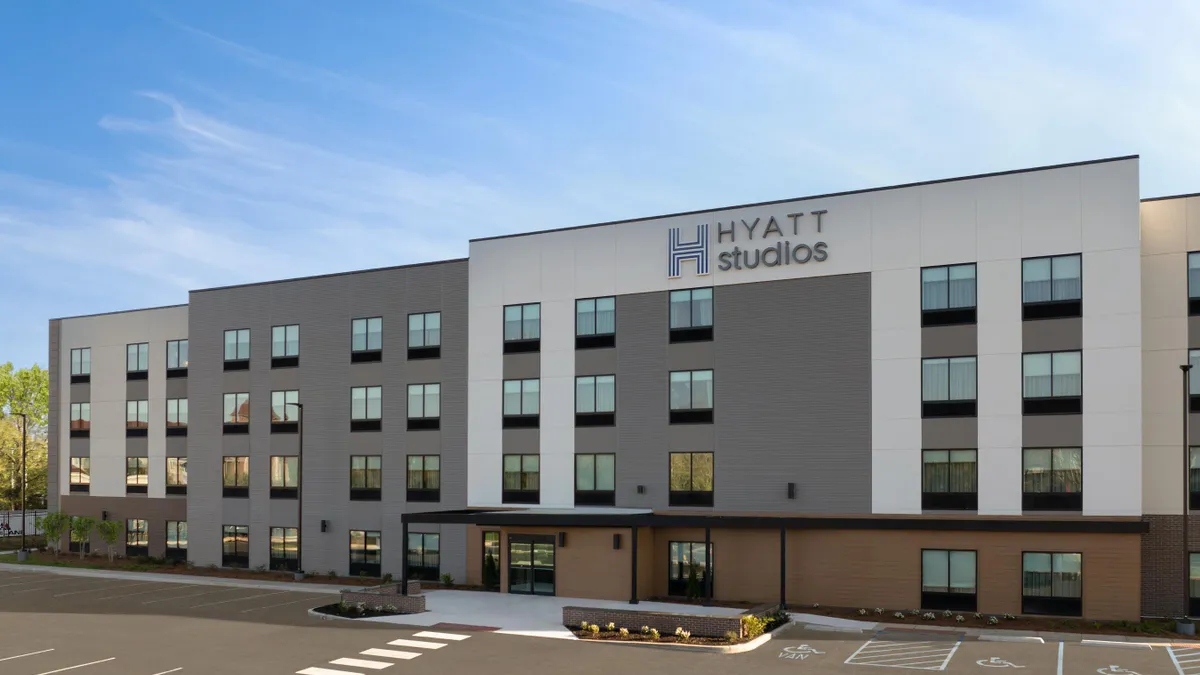The hotel industry was abuzz yesterday after Choice Hotels International announced it would abandon its proposed acquisition of Wyndham Hotels & Resorts — a bid many have deemed hostile.
Choice’s fierce pursuit of its peer ends after months of public back and forth between the companies — including Choice’s $7.8 billion offer in October, its subsequent exchange offer in December and Wyndham’s continued rejection and scrutiny of the combination.
Industry experts have speculated Choice’s public moves were meant to sway shareholders in favor of the combination. But after several months and multiple pleas to Wyndham stockholders to tender their shares in support of the deal, Choice was unable to garner sufficient backing ahead of its exchange offer’s March 8 deadline.
On Monday, Choice announced it would no longer pursue a Choice Hotels-Wyndham combination. The company will not extend its exchange offer and is withdrawing its slate of director nominees vying for Wyndham board seats to focus on its standalone strategy.
Choice walks away from a deal that it claimed could have created significant value for both companies’ shareholders and franchisees — but, that may be for the best, according to some hotel industry experts.
Industry pros spoke with Hotel Dive about Choice’s latest move — and why its exit may be a win-win for both companies’ stakeholders.
Industry reacts
Reliance Hospitality CEO Bryan Fish took to LinkedIn Monday morning to express his relief for Choice’s move.
“Great news for our industry,” Fish wrote in a LinkedIn post. “As we have seen with other M&A activity the past few years — larger key counts does not equal better results. Glad to see that this potentially devastating move for some asset owners is currently shelved.”
Also on LinkedIn, Nick Horgan, chief commercial officer at hospitality reporting platform Amaze Insights, said Choice’s decision to abandon the deal is “a good thing for the industry.”
He told Hotel Dive Monday that while “there was potential that a [Choice Hotels-Wyndham] merger could have been good for the industry,” the “uncertainty of the potential merger” was not good for the hospitality space.
“The greater degree of certainty around the merger not happening is better than the previous uncertainty around whether it would or would not happen,” Horgan said.
One reason for that uncertainty has been Wyndham’s continued rejection of Choice’s offer, with Wyndham claiming the offer undervalued its shareholders and presented antitrust concerns.
These, and similar concerns over anticompetitiveness raised by hotel industry leaders and franchisees, bolstered the Federal Trade Commission’s investigation into the deal, which would likely have lasted months.
Stakeholder risk
Asian American Hotel Owners Association President and CEO Laura Lee Blake — who has been a critic of the deal from day one — and, more recently, Sen. Elizabeth Warren, called on the FTC to closely scrutinize the deal, claiming that it would create a monopoly within the economy and limited service segment of the industry.
Blake previously told Hotel Dive the merger would harm franchisees. In a Monday LinkedIn post, she wrote, “AAHOA was an integral part of stopping the merger.” Blake declined to comment further on the decision.
John Kelley III, senior vice president of Newmark Valuation & Advisory's Hospitality, Gaming & Leisure practice, told Hotel Dive that hotel franchisees could have been hit with increased royalties and fees if the merger were to close.
Kelley had been skeptical about the deal’s ability to close because of the threat of anticompetitiveness. “I could not see the FTC approving this deal,” he said.
“The proposed acquisition of Wyndham Hotels by Choice Hotels — two of the largest hotel chains in the U.S. economy and in midscale segments — raised anticompetitive concerns as it posed potential to diminish franchisee bargaining power and lead to higher room rates for consumers, within a regulatory landscape where the FTC has actively opposed mergers perceived to significantly reduce market competition,” Kelley added.
In a Monday LinkedIn post, Kelley said the end of the deal “is likely a win-win for many stakeholders including Choice and Wyndham shareholders.”
Beyond the antitrust risk posed, Kelley told Hotel Dive that the cost savings from synergies and increased purchasing power that Choice advertised were likely overstated, as they are by many companies seeking to acquire another.
“In merger and acquisition deals, projections on the value generated from operational and financial synergies, as well as strategies for long-term growth, are typically estimates and can lean toward optimism,” Kelley said.
Choice has said in its public statements that the deal would have created “meaningful annual run-rate synergies, estimated at approximately $150 million.”
There are better routes for both Choice and Wyndham to improve shareholder value, Kelley told Hotel Dive.
Standalone strategies
In its Monday statement, Choice said it intends to continue focusing on its standalone strategy, which it is confident will “create significant long-term value for its stockholders and franchisees.”
Choice expects to “deliver another year of superior growth with projected adjusted EBITDA” driven by its revenue-intense strategy delivering accelerated unit growth and higher royalty revenue per hotel, the continued realization of higher-than-expected synergies from the Radisson Americas business integration and continued international business earnings growth and global pipeline expansion, the company said.
According to Kelley, one “viable strategy worth pursuing” by Choice is its expansion in the upscale segment — something the hotel company is already working on.
In recent months, Choice expanded its upscale Cambria brand with new openings and groundbreakings. The hotel company also featured two of its upscale brands in its largest marketing campaign to date in January, in a concerted effort to change the perception around its segmentation.
“Before the proposed M&A deal, Choice Hotels had strategically invested in diversifying its portfolio towards higher segment hotel brands. This can be an effective strategy for long-term growth, underpinned by Hilton's success in growing its collection of lower segment brands, including Spark by Hilton and Tru by Hilton,” Kelley said.
Wyndham, on the other hand, has maintained from its first public rejection of Choice’s offer that it could deliver “superior, standalone growth prospects” to shareholders, including a record development pipeline and ancillary revenue growth opportunities.
As for the FTC’s investigation into the proposed merger, Choice Hotels told Hotel Dive that “the FTC process has ended.” The hotel company declined to comment further on the scrapped deal.
FTC Bureau of Competition Director Henry Liu said in a Tuesday statement he was pleased that Choice “abandoned its efforts to seize control of its rival.”
“The FTC was closely scrutinizing Choice’s tender offer as well as its efforts to replace the Wyndham Board of Directors with its own hand-picked slate of nominees,” he added. “Each of these actions posed serious competition questions and their abandonment is a win for consumers.”

















